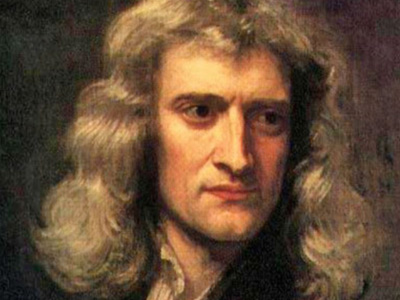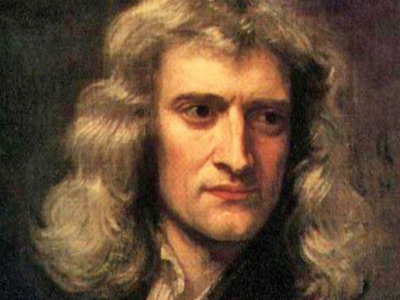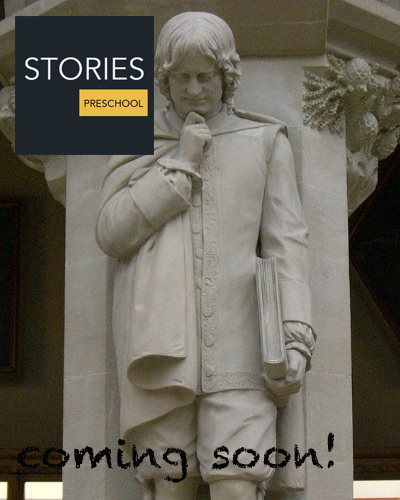Early Life
Isaac Newton was born (according to the Julian calendar, in use in England at the time) on Christmas Day, 25 December 1642 (NS 4 January 1643) "an hour or two after midnight", at Woolsthorpe Manor in Woolsthorpe-by-Colsterworth, a hamlet in the county of Lincolnshire. His father, also named Isaac Newton, had died three months before. Born prematurely, Newton was a small child; his mother Hannah Ayscough reportedly said that he could have fit inside a quart mug. When Newton was three, his mother remarried and went to live with her new husband, the Reverend Barnabas Smith, leaving her son in the care of his maternal grandmother, Margery Ayscough. The young Isaac disliked his stepfather and maintained some enmity towards his mother for marrying him, as revealed by this entry in a list of sins committed up to the age of 19: "Threatening my father and mother Smith to burn them and the house over them." Newton's mother had three children from her second marriage.
From the age of about twelve until he was seventeen, Newton was educated at The King's School, Grantham, which taught Latin and Greek and probably imparted a significant foundation of mathematics. He was removed from school, and by October 1659, he was to be found at Woolsthorpe-by-Colsterworth, where his mother, widowed for a second time, attempted to make a farmer of him. Newton hated farming. Henry Stokes, master at the King's School, persuaded his mother to send him back to school so that he might complete his education. Motivated partly by a desire for revenge against a schoolyard bully, he became the top-ranked student, distinguishing himself mainly by building sundials and models of windmills.
In June 1661, he was admitted to Trinity College, Cambridge, on the recommendation of his uncle Rev William Ayscough, who had studied there. He started as a subsizar—paying his way by performing valet's duties—until he was awarded a scholarship in 1664, guaranteeing him four more years until he could get his MA. At that time, the college's teachings were based on those of Aristotle, whom Newton supplemented with modern philosophers such as Descartes, and astronomers such as Galileo and Thomas Street, through whom he learned of Kepler's work. He set down in his notebook a series of "Quaestiones" about mechanical philosophy as he found it. In 1665, he discovered the generalised binomial theorem and began to develop a mathematical theory that later became calculus. Soon after Newton had obtained his BA degree in August 1665, the university temporarily closed as a precaution against the Great Plague. Although he had been undistinguished as a Cambridge student, Newton's private studies at his home in Woolsthorpe over the subsequent two years saw the development of his theories on calculus, optics, and the law of gravitation.
In April 1667, he returned to Cambridge and in October was elected as a fellow of Trinity. Fellows were required to become ordained priests, although this was not enforced in the restoration years and an assertion of conformity to the Church of England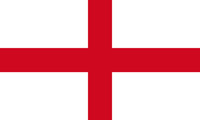 The Kingdom of England was a sovereign state on the island of Great Britain from about 927, when it emerged from various Anglo-Saxon kingdoms, until 1 May 1707, when it united with Scotland to form the Kingdom of Great Britain. The Viking invasions of the 9th century upset the balance of power between the English kingdoms, and native Anglo-Saxon life in general. The English lands were unified in the 10th century in a reconquest completed by King Æthelstan in 927. was sufficient. However, by 1675 the issue could not be avoided and by then his unconventional views stood in the way. Nevertheless, Newton managed to avoid it by means of a special permission from Charles II.
The Kingdom of England was a sovereign state on the island of Great Britain from about 927, when it emerged from various Anglo-Saxon kingdoms, until 1 May 1707, when it united with Scotland to form the Kingdom of Great Britain. The Viking invasions of the 9th century upset the balance of power between the English kingdoms, and native Anglo-Saxon life in general. The English lands were unified in the 10th century in a reconquest completed by King Æthelstan in 927. was sufficient. However, by 1675 the issue could not be avoided and by then his unconventional views stood in the way. Nevertheless, Newton managed to avoid it by means of a special permission from Charles II.
His studies had impressed the Lucasian professor Isaac Barrow, who was more anxious to develop his own religious and administrative potential (he became master of Trinity two years later); in 1669 Newton succeeded him, only one year after receiving his MA. He was elected a Fellow of the Royal Society (FRS) in 1672.
HISTORY
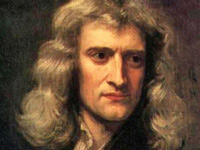
RESOURCES
This article uses material from the Wikipedia article "Isaac Newton (1642-1726)", which is released under the Creative Commons Attribution-Share-Alike License 3.0.
© Stories Preschool. All Rights Reserved.
